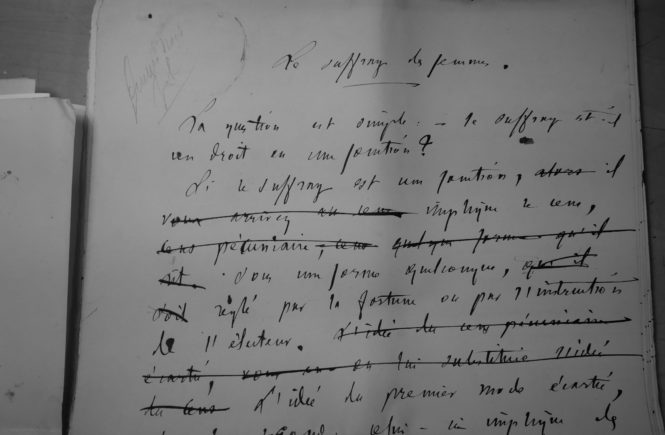Notice on Frédéric Passy
Born in May 1822, Frédéric Passy studied in the Ecole de Droit in Paris and started his career as a journalist. His close relations with the great economists of the time (including Bastiat, Molinari, Coquelin and his own uncle Hippolyte Passy) soon enabled him to write in the Journal des Economists and teach economics in different places.
He gave lectures in Montpellier and published his lessons as a two-volume book, the Leçons d’économie politique. As an economist, Passy was clearly among the French classical liberal tradition. In the Leçons, for instance, Bastiat is the most referenced author.
Passy was a brilliant economist, and if he was not even more brilliant as a peace fighter, he would probably still be known as one of the great economists of the French classical liberal tradition.
He has illustrated this tradition in numerous books and articles. There is one, in particular, which I found fascinating enough to be republished, one hundred years after, by the Institut Coppet: “Paper-money is counterfeit money,” (Le papier-monnaie est de la fausse monnaie), published in 1909. [1] It’s a wonderful exposition of the reasons why fiat money is nothing but legal plunder.
He writes: “Paper which claims to be something and which is in fact nothing, this paper is not just one theft more or less. It is the complete theft. This is not only a currency altered and exaggerated, it is a zero currency, radically and voluntarily zero.”
Nonetheless, Passy was not only a devoted follower; over the years, he has built up his own system. “In politics, in science, in religion, he said, I belong to no party, no sect and no school. ” [2]
On the one hand, he was always very principled, and took very strong or radical positions – some would say extreme. For instance, he was against any role of government in the production of money and favored the Free Banking ideas of his friend Courcelle-Seneuil, when most of his colleagues of the “Société d’économie politique” were more reluctant to admit it, even in theory. He also debated Gustave de Molinari, founder of anarcho-capitalist theory, when he found him too “interventionist” for his taste. They published together De l’enseignement obligatoire (On compulsory education) with Molinari supporting a certain form of mission for the government to have all children educated by private schools, when Passy refused to let the government use coercion or force in this matter. [3]
On the other hand, he started to incorporate one element into his system: peace. It is not to say that peace was neglected by the classical liberal economists of his time: Bastiat wrote about it, Molinari wrote about it, in fact anyone who was a free-market economist in France promoted both open borders and peace among people. But Passy took this to another level. He was deeply influence by Richard Cobden on this point, who spent his life repeating that free trade was the key to peace and material prosperity. [4]
He was a pacifist, but not of the naïve kind. He was neither an anti-patriot nor an anti-militarist. He only thought that conflicts could often be avoided, provided that the settlement of international and internal disputes by peaceful means was at least tried. This is the reason why he founded several international organizations, such as the Ligue internationale et permanente de la paix (created in 1867), and the Société d’arbitrage entre les Nations (1870).
He opposed the various conflicts of the time, including the crisis of 1867 between Luxembourg, France, and Prussia, and, of course, the Franco-Prussian war of 1870. This was a failure, because his Société did not prevent the war from happening. But he continued along this path and in 1872 he created the Société Française des Amis de la Paix. He never gave up trying to oppose war by the mean of cooperation between nations and, of course, the defense of free trade and free markets.

